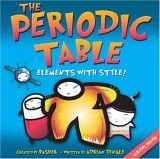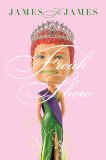The Cybil winners were announced. I had the most awesomest extreme pleasure to serve as one of the judges for Middle Grade/Young Adult nonfiction.
So, in today's super-long post, I'm giving the run-down of all of our nominees-- they were all fantastic!!!
But, it's Friday, so first, a poem:

A Song for Alef
Alef the letter
Is a refugee.
From paper
To paper
He knows
No home...
To read the rest, you'll have to read this year's winner, Tasting the Sky: A Palestinian Childhood Ibtisam Barakat
Ibtisam was 3 1/2 when the Six Day war forced her family to fell from their home in the West Bank. After the harrowing experience of being seperated from her family in the confused mob, she finds them and they manage to escape to Jordan.
The Barakat family live as refugees in shelters, in a classroom, and on a new friend's kitchen floor for nearly 5 months before being allowed back home. But, once home, there is still shooting, still fighting. It's not safe, so it's to an orphanage. There, here brothers are sent away for brawling.
Eventually, they move. Through it all, Barakat's solace is language and her love of the letter alef--the first letter of the alphabet in Arabic and Hebrew.
But, underneath it all, Tasting the Sky is a story of growing up, of losing a pet and sibling rivalry, of making friends and worrying about school, of moving and saying goodbye. While there is sadness in Barakat's tale, there is no anger or hatred, just a hope for peace. And that's a hope we call all share.
Who Was First?: Discovering the Americas Russell Freedman
Dude, it's Russel Freedman, you know it rocks.
This time, the master of children's non-fic takes on the discovery of America. He starts with Christopher Columbus and then works backwards through time, discussing who discovered America before Columbus, who discovered him before that and on and on. He also devotes a fair chunk to current theory and theories we've discarded over the years.
It had a great design--good use of white space and lots of pictures and maps. However, some of the illustration captions were a bit confusing.
He spends a whopping 10 pages discussing Gavin Menzies's theory that the Chinese discovered the US in 1421. Although Freedman gives both sides of the debate, it seems like a lot of page space to devote to a theory that not a lot of historians credit.
I was most impressed by Freedman's sources and his amazing ability to take very complex, academic arguments and make them accessible to a children's audience without dumbing them down.
The Periodic Table: Elements with Style Adrian Dingle
This is a fun look at the elements. Going through the periodic table, it presents basic information about selected elements including atomic weight, color, date of discovery as well as what it is used for and random fun facts. All of this information is accompanied by a fun drawing of the element, looking awesome and anthropomorphized. Where it might not be the best reference book, it's a really fun book for browsing through and learning about the elements. It also has an awesome pull out poster of the periodic table with all the cool cartoon guys in their little squares. 2 complaints-- not all of the elements are covered in the book. Also, when discussing radium, there was no mention of radiation (which seems like a pretty big oversight!) and when discussing bismuth, there was no mention of Pepto (a lesser oversight, but one that would have been fun to include!)
Ok, so that's 3 of the 6 nominees. Stay tuned for more!
Oh! and Poetry Friday round-up is hosted by the ever-lovely Kelly over at Writing and Ruminating!













